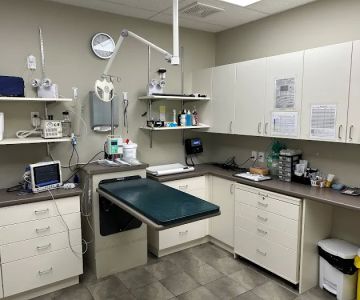- 1 - Understanding Feline Systemic Illness
- 2 - Early Warning Signs Every Pet Parent Should Notice
- 3 - Diagnostic Approaches for Systemic Illness in Cats
- 4 - Treatment Options and Veterinary Care
- 5 - Real Case Example: When a Cat’s Subtle Signs Saved Its Life
- 6 - How to Support Your Cat at Home During Recovery
- 7 - When to Seek Professional Help and Trusted Services
1 - Understanding Feline Systemic Illness
Systemic illness in cats refers to medical conditions that affect multiple organs or systems in the body. Unlike a localized problem, such as a minor skin infection, a systemic illness can influence the cat’s entire health and well-being. Conditions like feline infectious peritonitis (FIP), chronic kidney disease, or hyperthyroidism are some common examples. These illnesses often progress quietly, making them challenging for pet parents to detect early without proper knowledge.
Recognizing the seriousness of these illnesses is critical. A cat’s natural instinct is to hide discomfort, which can delay diagnosis. That’s why understanding systemic illnesses is the first step toward ensuring your feline companion lives a healthier, longer life.
2 - Early Warning Signs Every Pet Parent Should Notice
Because cats are skilled at masking pain, early warning signs are often subtle. Some symptoms include sudden weight loss, changes in appetite, lethargy, excessive thirst, vomiting, or unusual bathroom habits. Behavioral shifts—like hiding more often or becoming less affectionate—can also indicate trouble.
It’s important not to dismiss these changes as “just aging.” For instance, a middle-aged cat that suddenly drinks excessive water could be showing signs of diabetes or kidney disease. Early recognition of such symptoms makes treatment far more effective and less stressful for both the cat and its owner.
3 - Diagnostic Approaches for Systemic Illness in Cats
Veterinarians use a combination of physical exams, blood tests, urine analysis, and imaging (like ultrasound or X-rays) to identify systemic illnesses. Bloodwork can reveal abnormal organ function, while imaging may show internal abnormalities that are not externally visible.
In some cases, genetic testing or specialized lab work may be necessary, particularly when autoimmune or infectious systemic diseases are suspected. A timely diagnosis ensures that the treatment plan can be tailored specifically to your cat’s needs, minimizing complications and maximizing quality of life.
4 - Treatment Options and Veterinary Care
Treatment depends on the underlying illness. For example, chronic kidney disease often requires fluid therapy and dietary changes, while hyperthyroidism might be managed with medication, radioactive iodine therapy, or surgery. Infections may call for antibiotics or antivirals, and autoimmune conditions may need long-term immunosuppressive therapy.
Pet owners should prepare for ongoing care, as many systemic illnesses are chronic rather than curable. Consistency in administering medication and following dietary guidelines plays a pivotal role in improving outcomes. Regular checkups are also necessary to monitor progress and adjust treatment plans.
5 - Real Case Example: When a Cat’s Subtle Signs Saved Its Life
Consider the story of Bella, a 7-year-old domestic shorthair whose owner noticed subtle changes: she stopped jumping on her favorite windowsill and seemed unusually tired. At first, it looked like simple aging, but a veterinary visit revealed early-stage kidney disease. Thanks to early intervention, Bella’s condition is now well-managed with diet adjustments and routine checkups.
This real-life example highlights the importance of not ignoring even small changes in your cat’s behavior. Prompt veterinary care can make the difference between a manageable condition and a life-threatening illness.
6 - How to Support Your Cat at Home During Recovery
Supporting a cat with systemic illness requires patience and consistency. Create a stress-free environment by offering quiet resting areas, maintaining a predictable routine, and providing easy access to food and water. Specialized diets designed for cats with kidney, thyroid, or digestive issues can significantly improve their comfort and long-term health.
Interactive play, gentle grooming, and spending quality time together also help reduce stress and strengthen the bond between you and your feline friend. These small efforts can have a big impact on your cat’s overall well-being during recovery.
7 - When to Seek Professional Help and Trusted Services
If your cat shows persistent or worsening symptoms, it’s time to consult a veterinarian immediately. Timely care can prevent systemic illnesses from escalating into emergencies. For ongoing guidance, specialized diets, and trustworthy veterinary support, visiting Hidden Brook Veterinary ensures you have access to the most appropriate services for your feline companion.
By staying observant, acting quickly, and choosing professional care, you can give your cat the best chance at a healthy and fulfilling life, even when faced with systemic illness.











